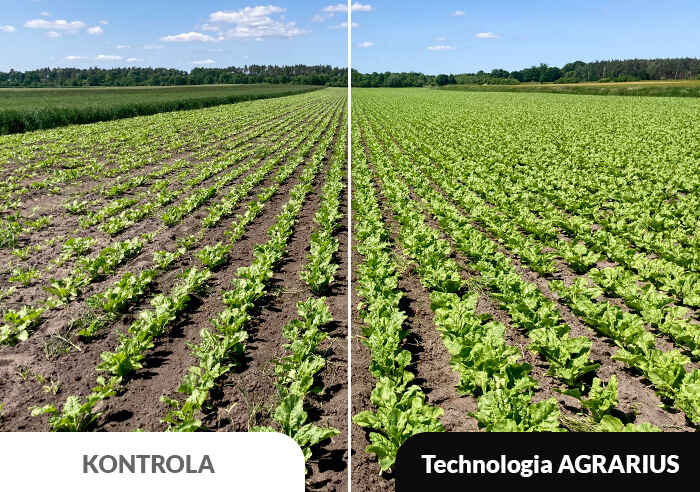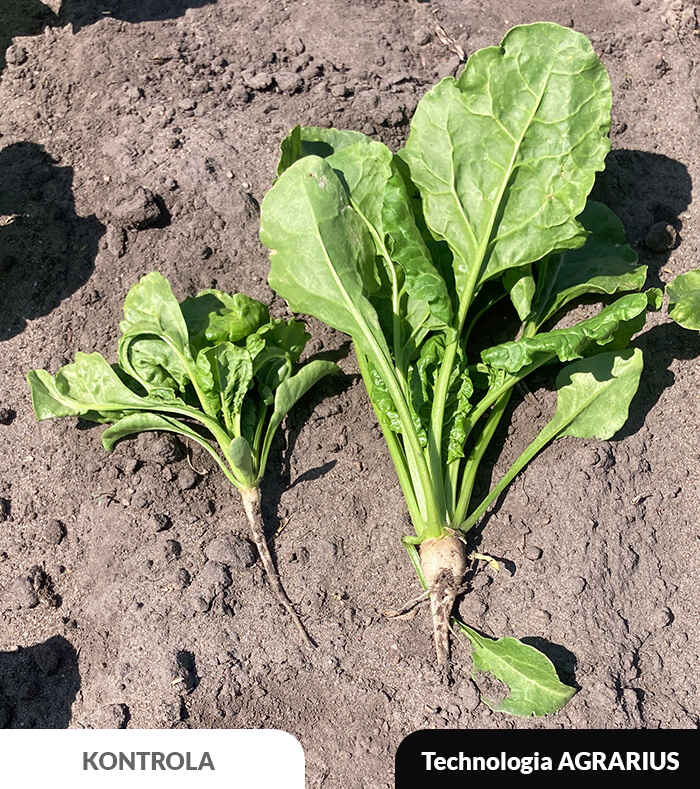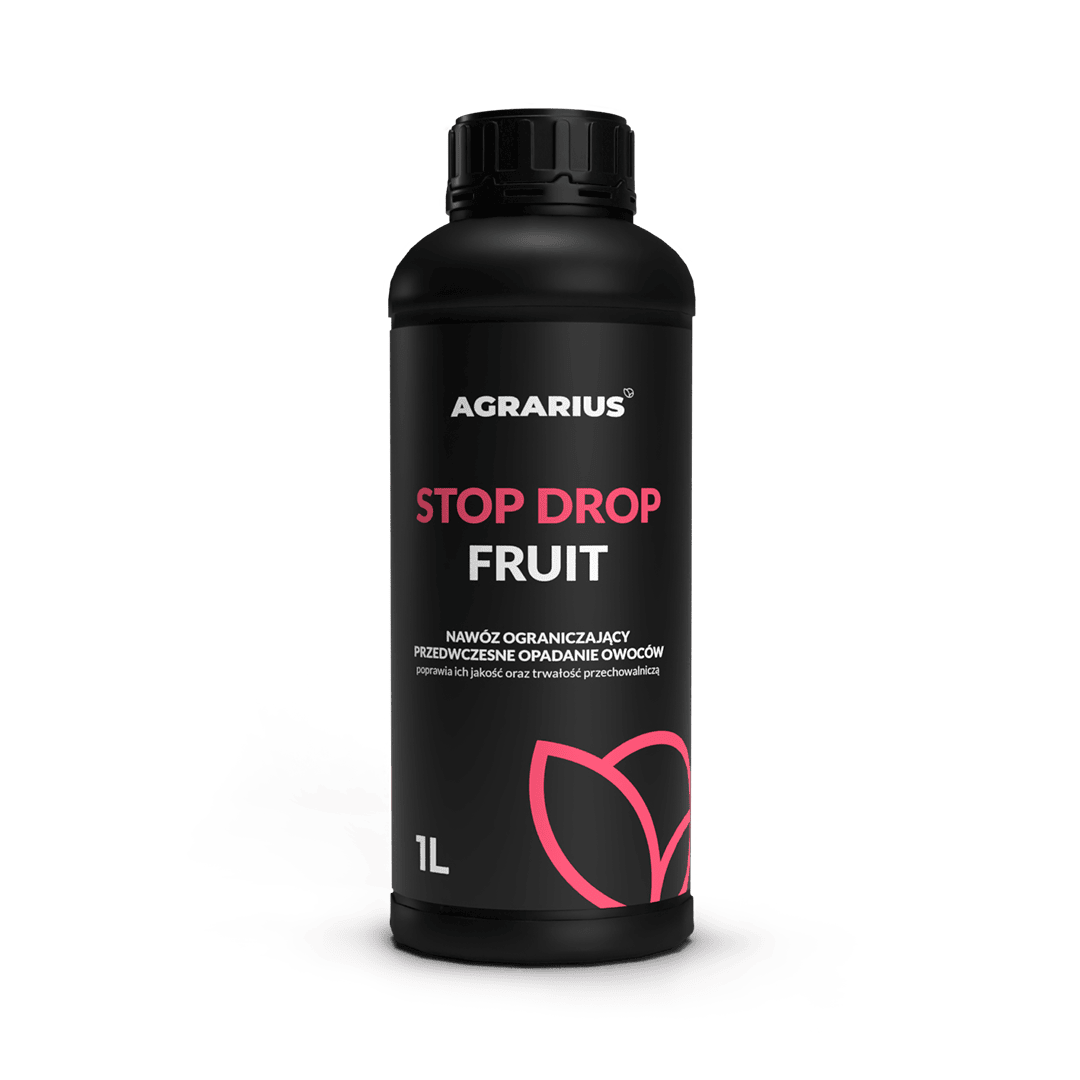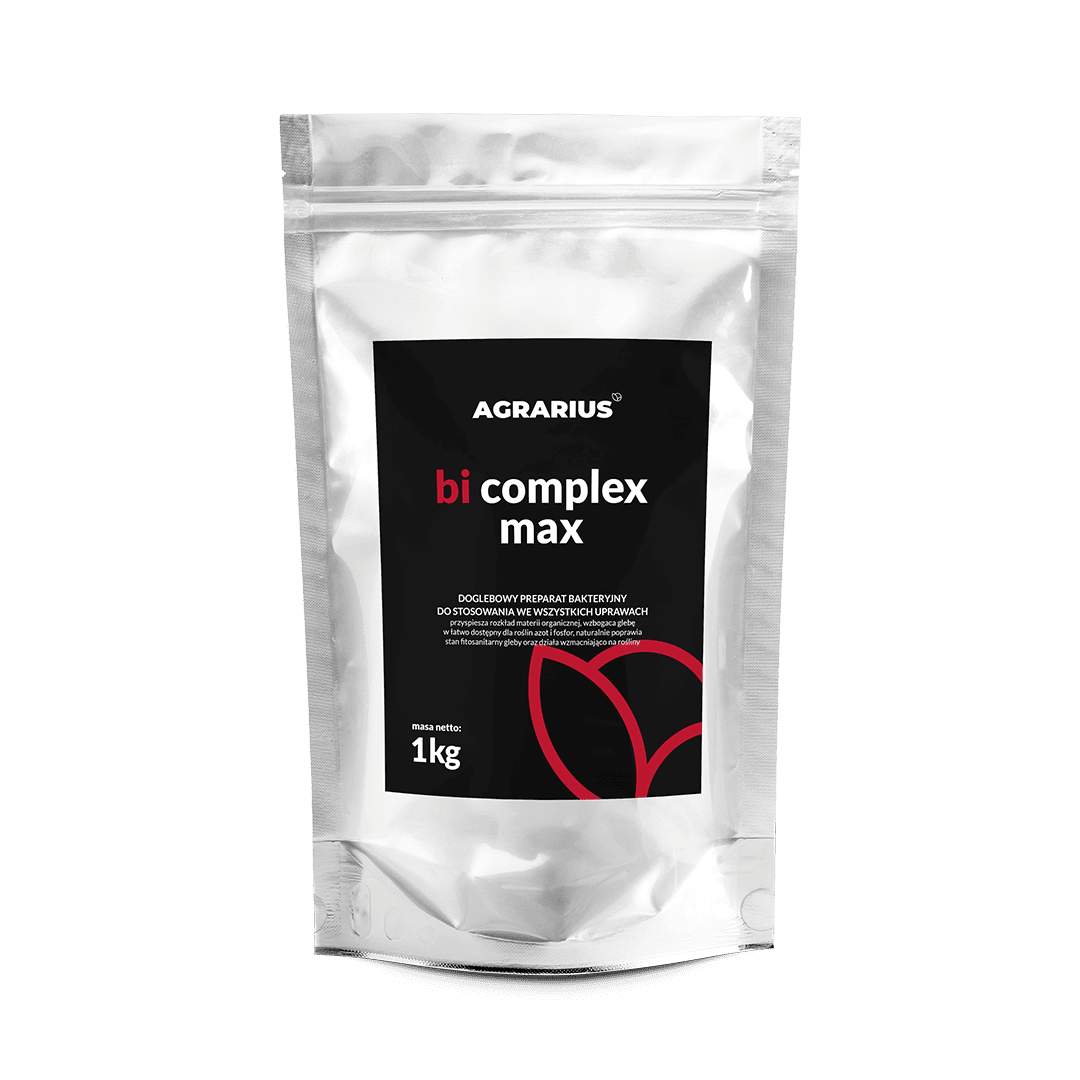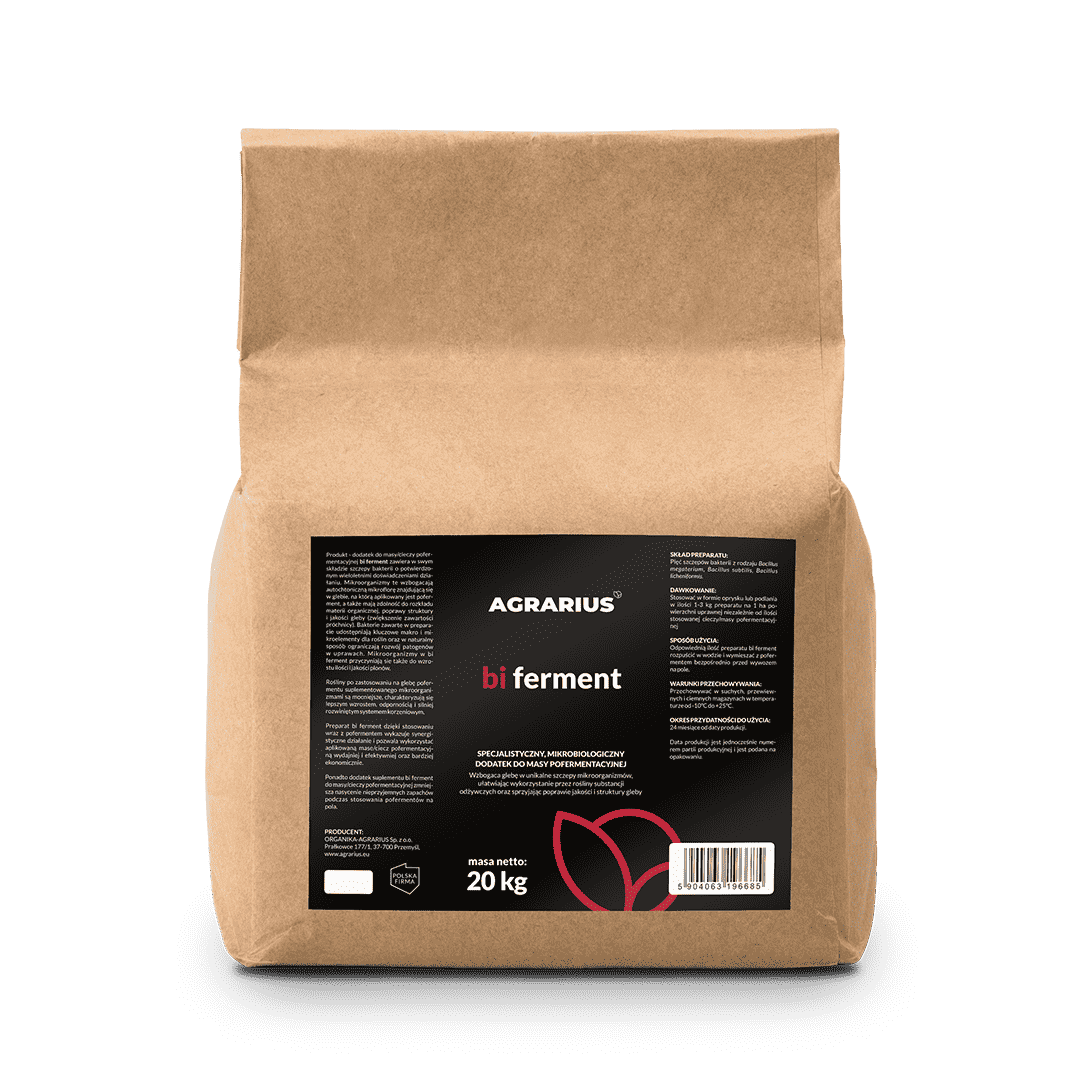bi azot
Nitrogen-Fixing Bacteria
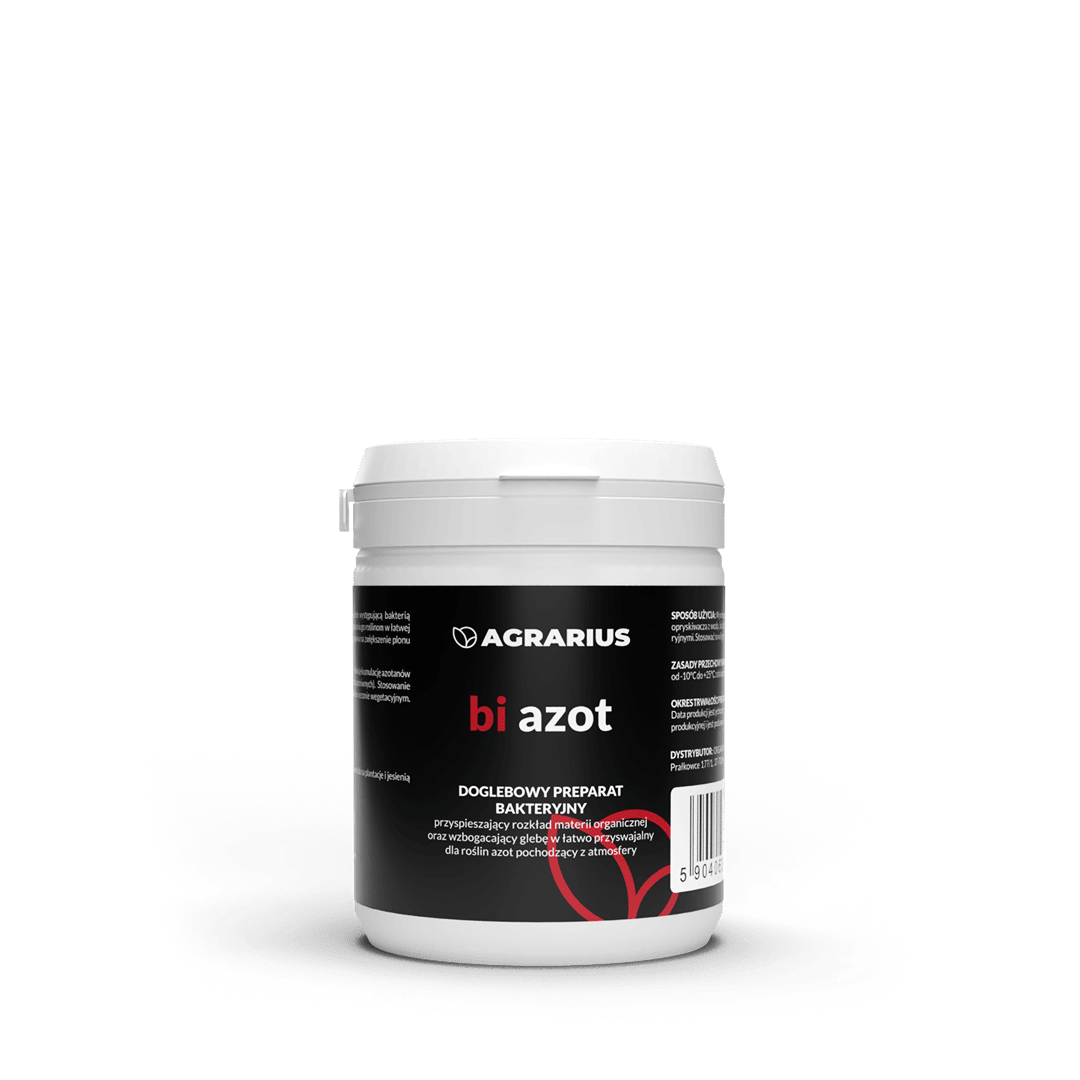
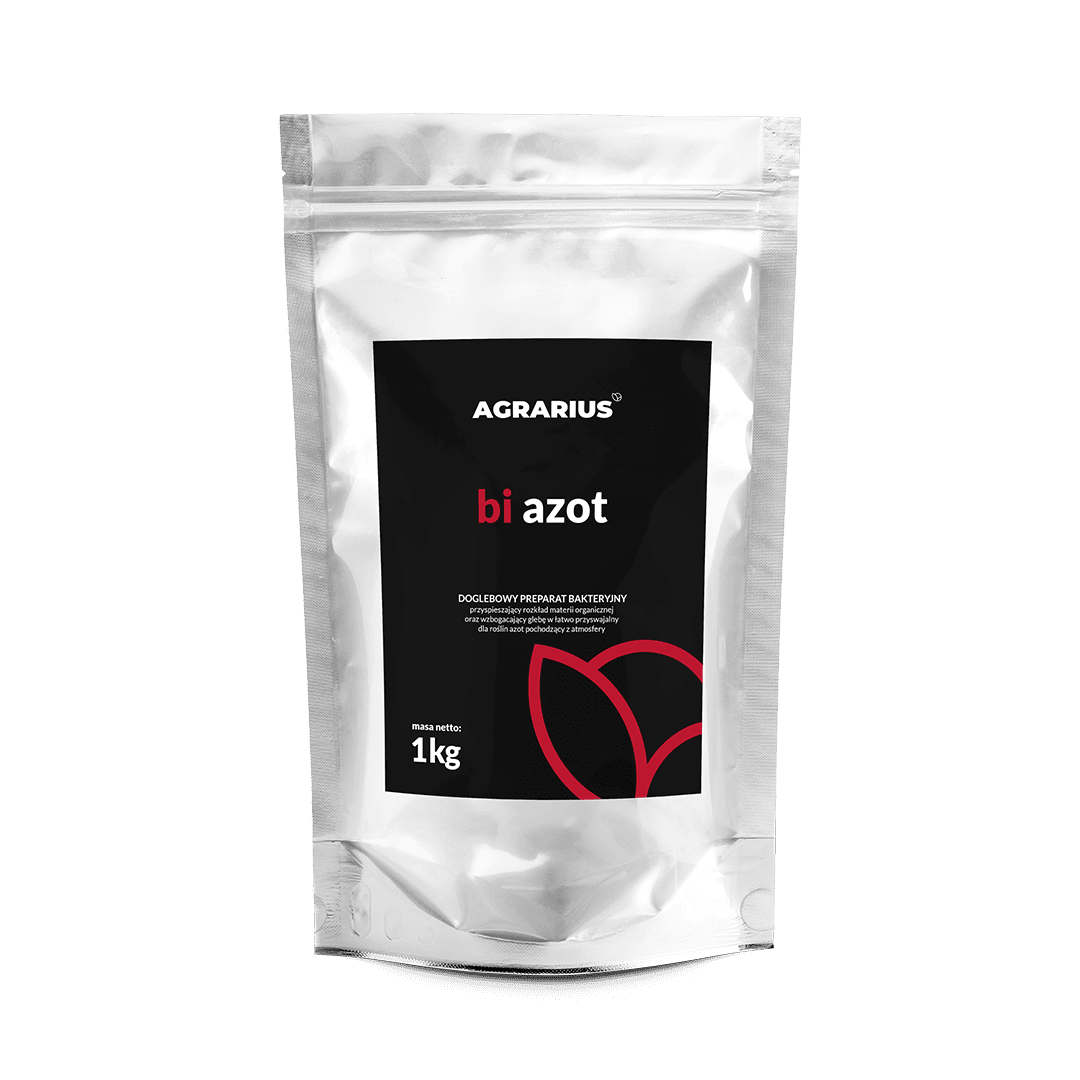
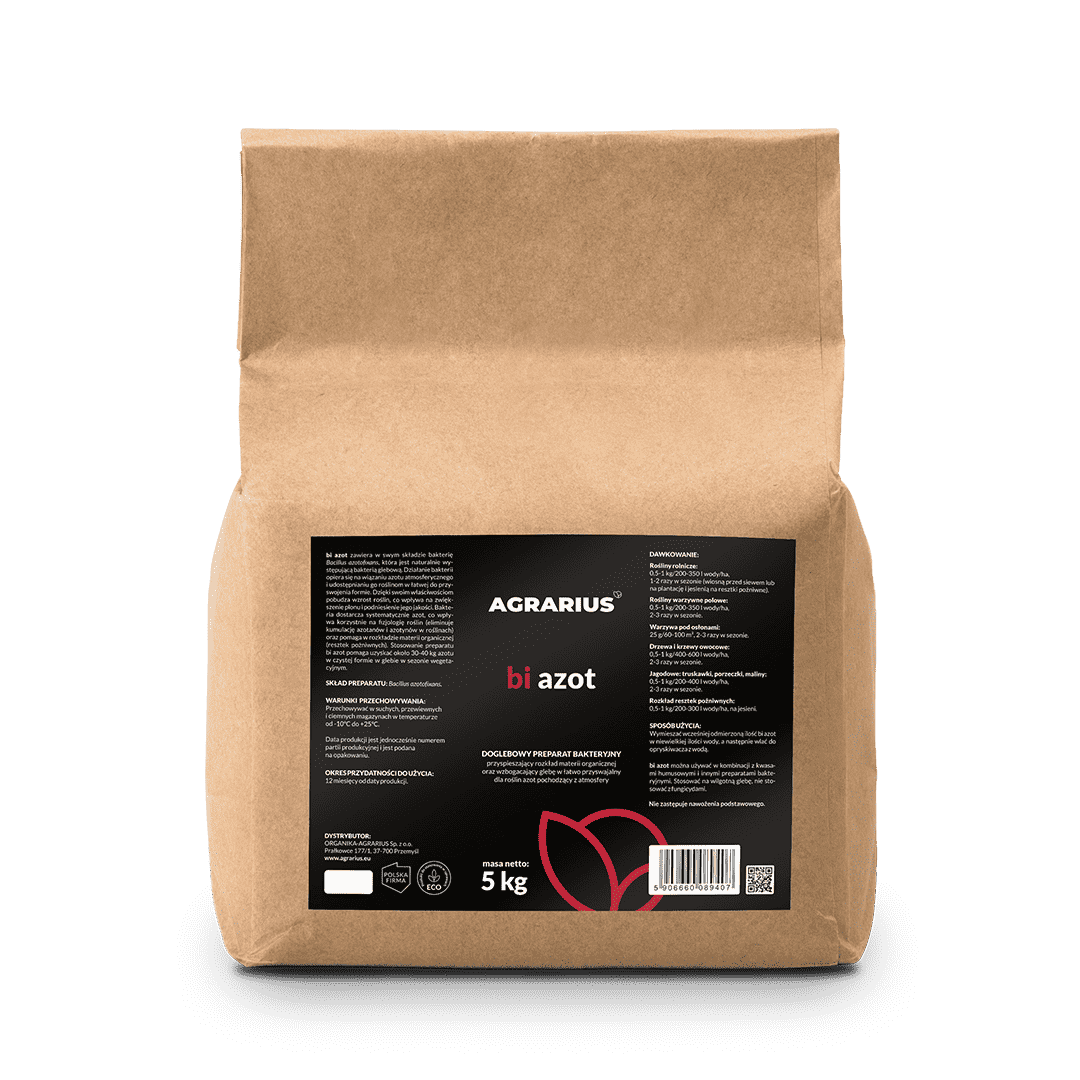
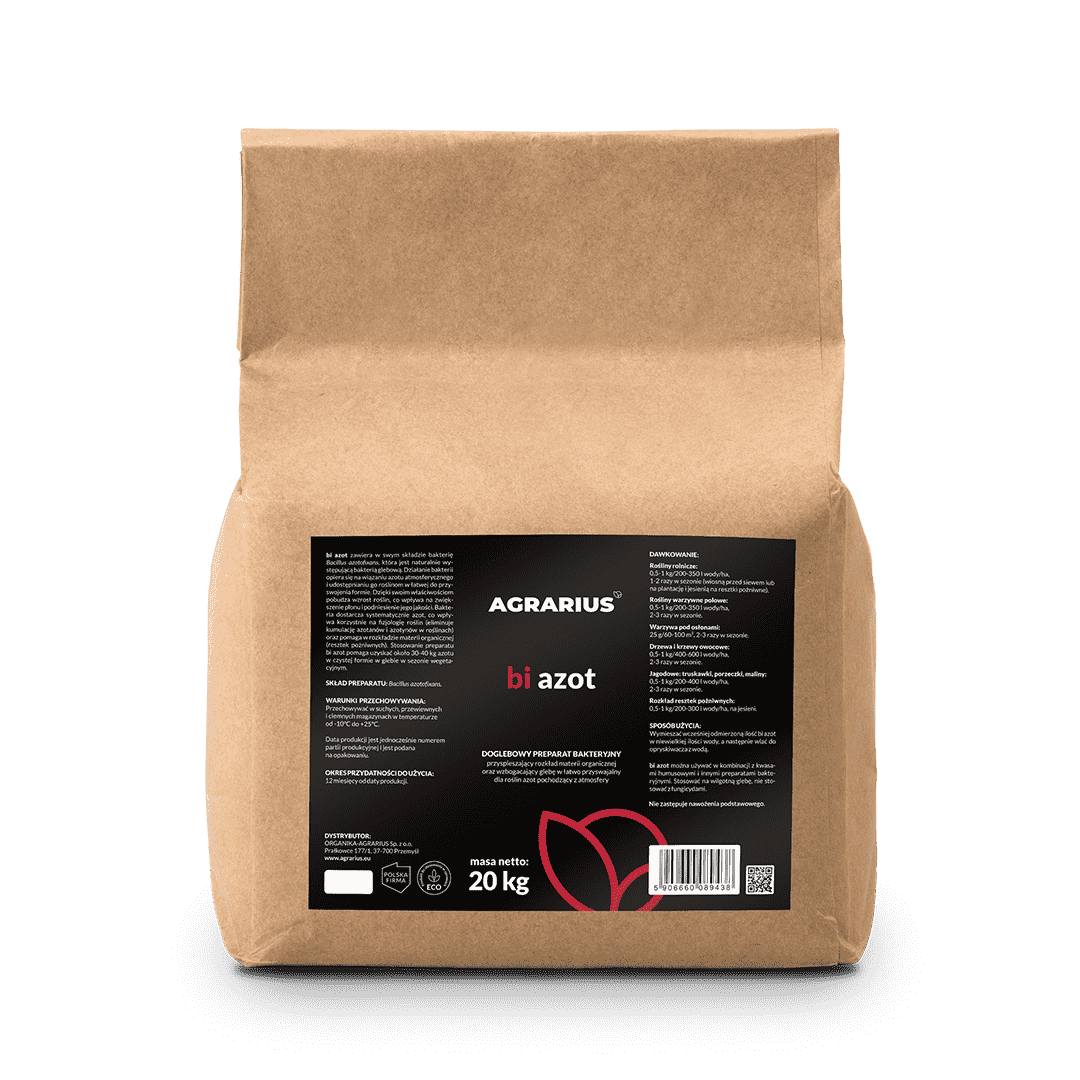
Benefits of use:
Product description:
bi azot effectively binds atmospheric nitrogen and facilitates its efficient absorption by plants, similar to nutrient uptake from organic matter, which is mineralised and supplied to plants due to bi azot supplementation. The product is rich in unique nitrogen-fixing bacteria Bacillus azotofixans, which enhance nitrogen cycling in the soil and help deliver it to plants in a highly absorbable form. The product prevents the accumulation of nitrites and nitrates in plant tissues.
This innovative product is the only powdered product on the Polish market containing such a large number of beneficial bacteria in 1 gram of product. The product provides nitrogen continuously and over the long term. Using the product in early spring or autumn helps rebuild the appropriate population of Bacillus azotofixans bacteria in the soil and create optimal conditions for plant growth. By accelerating the decomposition of post-harvest residues, bi azot helps enrich the soil with humus and creates optimal conditions for agricultural, vegetable, and fruit cultivation.
Microbial fertiliser bi azot is particularly recommended for soils with low organic matter content and intensively exploited soils, where the content of beneficial microorganisms is too low to maintain soil health. Due to the presence of bacteria highly resistant to adverse environmental conditions, bi azot performs exceptionally well in soils previously treated with herbicides, synthetic fertilisers, insecticides, and fungicides, as well as in areas where adverse environmental conditions lead to soil depletion and a reduction in nitrogen bacteria populations. An adequate supply of nitrogen is essential for successful crop cultivation. Nitrogen is a component of chlorophyll, proteins, and enzymes. This mineral plays a crucial role in plant metabolism, and its deficiency results in growth inhibition, yellowing, discolouration, and reduced yields.
An appropriate amount of nitrogen-fixing bacteria in the soil, tailored to the needs of the plants, ensures the production of compounds that support plant growth and yield. Free-living bacteria Bacillus azotofixans in the rhizosphere are particularly desirable in soil due to their ability to perform nitrogen fixation – binding atmospheric nitrogen using the enzyme nitrogenase. Nitrogen-fixing bacteria can bind up to 50 kg of nitrogen per 1 hectare of cultivated land, and the bound element can further circulate in the biosphere.
Bacillus azotofixans at a concentration of 1x10⁹ CFU per each gram of product.
| CROP | DOSAGE | APPLICATION |
|---|---|---|
| Field crops | 0,5-1 kg/200-350 l water/ha | 1-2 times per season (in spring before sowing or planting and in autumn for post-harvest residues) |
| Field vegetables | 0,5-1 kg/200-350 l water/ha | 2-3 times per season |
| Protected vegetables | 25 g/60-100 m2 | 2-3 times per season |
| Fruit trees and bushes | 0,5-1 kg/400-600 l water/ha | 2-3 times per season |
| Berry crops: strawberries, currants, raspberries | 0,5-1 kg/200-400 l water/ha | 2-3 times per season |
| Decomposition of post-harvest residues | 0,5-1 kg/200-300 l water/ha | in autumn |
Additional information:
Microbial fertiliser bi azot should be applied to moist soil – preferably together with humic acids, which enhance the multiplication of nitrogen-fixing bacteria Bacillus azotofixans.
Bi azot should not be used in sunny weather or during droughts. It should not be mixed with chemical products, especially fungicides.
The fertiliser has been approved for use in organic farming by the Institute of Soil Science and Plant Cultivation (SE/25/2020).
Write to us and send us the results of your experience.
